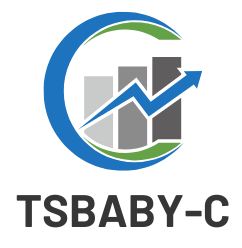
As a real estate investor, I’ve discovered that finding lenders who offer Home Equity Lines of Credit (HELOCs) on investment properties can be challenging. While many lenders readily provide HELOCs for primary residences, the options become limited when it comes to investment properties.
I’ve researched extensively and found that several financial institutions who offers HELOC on investment property, though they often come with stricter requirements and higher interest rates. Regional banks, credit unions, and some national lenders have stepped up to fill this niche market. Through my experience in real estate investing, I’ll share which lenders are currently offering these products and what you’ll need to qualify.
Key Takeaways
- Several lenders offer HELOCs for investment properties, including PenFed Credit Union, TD Bank, Regions Bank, and online lenders like Figure and Prosper
- Investment property HELOCs typically require higher credit scores (680-720), lower loan-to-value ratios (70-75%), and more cash reserves (6-12 months) compared to primary residence HELOCs
- Interest rates for investment property HELOCs range from 7.99% to 12.99%, about 2-4 percentage points higher than primary residence HELOC rates
- Draw periods are typically shorter (5-10 years) for investment property HELOCs compared to primary residence HELOCs (10-15 years)
- Lenders require extensive documentation including rental income history, property appraisals, and proof of adequate insurance coverage
Who Offers HELOC on Investment Property
A HELOC on an investment property functions as a revolving credit line secured by the equity in a non-owner-occupied property. Investment property HELOCs differ from primary residence HELOCs in three key aspects: qualification criteria, interest rates, and loan-to-value ratios.
Qualification Requirements
Investment property HELOC approval depends on these essential factors:
- Credit score minimums of 680-720
- Debt-to-income ratio below 43%
- Property value documented by recent appraisal
- Rental income history of 24+ months
- Cash reserves covering 6-12 months of payments
Interest Rates and Terms
Investment property HELOCs carry distinct pricing features:
| Feature | Investment HELOC | Primary Home HELOC |
|---|---|---|
| Interest Rate Range | 7.99% – 12.99% | 5.99% – 8.99% |
| Draw Period | 5-10 years | 10-15 years |
| Repayment Period | 10-15 years | 15-20 years |
Loan-to-Value Considerations
Lenders apply stricter LTV limits on investment properties:
- Maximum combined LTV of 70-75%
- Minimum equity requirement of 25-30%
- Property value based on current market appraisal
- Net rental income factored into LTV calculations
- Portfolio lending limits per borrower
- Property occupancy status verification
- Rental market analysis in the area
- Property condition documentation
- Insurance coverage requirements
- Exit strategy for loan repayment
Top Lenders Offering Investment Property HELOCs
After analyzing numerous financial institutions, I’ve identified several lenders that offer HELOCs on investment properties. These lenders vary in their approach, requirements and geographical coverage.
Traditional Banks and Credit Unions
-
PenFed Credit Union
- Offers up to 80% CLTV
- Rates starting at 8.25% APR
- Available in all 50 states
- Membership required
-
TD Bank
- Serves 15 East Coast states
- Maximum 75% CLTV
- Interest rates from 9.24% APR
- Investment property program includes 1-4 unit properties
-
Regions Bank
- Available in 15 Southern states
- CLTV up to 70%
- Fixed-rate options available
- Requires property inspection
Online Lenders and Alternative Financing Companies
-
Figure
- 100% online application process
- Funding in 5 business days
- CLTV up to 70%
- Fixed rates from 8.99% APR
-
Prosper
- Digital-first lending platform
- Investment property HELOC program in 45 states
- Maximum CLTV of 75%
- Automated underwriting system
- Alternative financing option
- No monthly payments
- Investment term up to 10 years
| Lender Type | Typical CLTV Range | Average Processing Time | Min Credit Score |
|---|---|---|---|
| Traditional Banks | 70-80% | 30-45 days | 680 |
| Credit Unions | 75-80% | 21-30 days | 700 |
| Online Lenders | 65-75% | 5-14 days | 640 |
Key Requirements for Investment Property HELOCs
Investment property HELOC applications face rigorous evaluation criteria from lenders. I’ve identified the essential qualifications that financial institutions consistently require for approval.
Credit Score and Income Requirements
Lenders mandate a minimum credit score of 680-720 for investment property HELOC approval. A debt-to-income (DTI) ratio below 43% proves crucial, with lenders calculating both personal income streams and rental property revenues. Documentation requirements include:
- Tax returns covering 2 years of rental income history
- Bank statements showing 6-12 months of cash reserves
- Proof of stable employment or self-employment income
- Current lease agreements for all rental properties
- Payment history verification for existing mortgages
Property Value and Equity Minimums
Property valuation metrics determine available credit lines through specific loan-to-value (LTV) calculations. Key equity requirements include:
| Requirement Type | Typical Range |
|---|---|
| Maximum CLTV | 70-75% |
| Minimum Equity | 25-30% |
| Property Value | $100,000+ |
| Recent Appraisal | Within 6 months |
- Recent professional appraisal reports
- Property inspection certificates
- Proof of adequate insurance coverage
- Title search verification
- Property tax payment history
- Rental market analysis for the area
Comparing HELOC Terms and Features
Investment property HELOC terms vary significantly among lenders in both their features and requirements. Based on my analysis of current market offerings, here’s a detailed comparison of key terms and features.
Interest Rates and Payment Options
Investment property HELOC rates typically range 2-4 percentage points higher than primary residence HELOCs. Here’s a breakdown of common rate structures and payment options:
| Rate Type | Range | Payment Options |
|---|---|---|
| Variable Rate | 7.99% – 12.99% | Interest-only during draw |
| Fixed Rate | 8.99% – 13.99% | Principal + Interest |
| Hybrid Rate | 8.49% – 13.49% | Rate lock on portions |
Interest-only payments apply during the draw period with most lenders offering:
- Monthly automatic payments from linked accounts
- Online or mobile payment options
- Fixed-rate conversion on withdrawn amounts
- Minimum draw requirements of $10,000-$25,000
Draw Periods and Repayment Terms
Draw periods for investment property HELOCs follow specific timeframes with defined repayment structures:
| Feature | Typical Range | Details |
|---|---|---|
| Draw Period | 5-10 years | Access to credit line |
| Repayment Period | 10-15 years | Full amortization |
| Minimum Draw | $10,000-$25,000 | Initial withdrawal |
| Maximum Term | 15-20 years | Total loan duration |
- Immediate access to funds after closing
- Multiple draw options through checks cards or transfers
- Rate lock options on withdrawn amounts
- Conversion to fixed-rate loans during repayment
- Early repayment without penalties from most lenders
Pros and Cons of Investment Property HELOCs
Advantages
- Flexible Access to Equity: I access funds as needed during the draw period without reapplying for new loans each time.
- Lower Interest Rates: Investment property HELOCs offer lower rates than credit cards or hard money loans, typically ranging from 7.99% to 12.99%.
- Interest-Only Payments: During the draw period, I pay interest exclusively on the amount borrowed rather than the entire credit line.
- Tax Benefits: The interest paid may qualify as a tax-deductible business expense when used for property improvements.
- Portfolio Expansion: I leverage existing equity to purchase additional investment properties or fund renovations.
- Higher Rates Than Primary Residences: Investment property HELOC rates average 2-4 percentage points above primary residence rates.
- Strict Requirements: Lenders require:
- Credit scores of 680-720 minimum
- DTI ratios below 43%
- 24+ months of rental income history
- 6-12 months of cash reserves
- Lower LTV Limits: Maximum combined LTV ratios cap at 70-75%, compared to 85-90% for primary residences.
- Variable Interest Rates: Rates fluctuate with market conditions, potentially increasing monthly payments.
- Risk of Property Loss: The investment property serves as collateral, creating foreclosure risk if payments default.
- Shorter Terms: Draw periods limited to 5-10 years with 10-15 year repayment periods versus longer terms for primary residences.
| Feature | Investment Property HELOC | Primary Residence HELOC |
|---|---|---|
| Max CLTV | 70-75% | 85-90% |
| Interest Rates | 7.99-12.99% | 5.99-8.99% |
| Draw Period | 5-10 years | 10-15 years |
| Min Credit Score | 680-720 | 620-660 |
| Cash Reserves | 6-12 months | 0-3 months |
Investment Property
Finding who offers HELOC on investment property requires careful research and preparation. I’ve found that while options are more limited than for primary residences several reputable lenders do offer this financing solution.
I recommend focusing on meeting the strict qualification criteria and gathering all necessary documentation before applying. Remember that investment property HELOCs typically come with higher rates and stricter terms but can be valuable tools for portfolio expansion when used strategically.
Choose a lender that aligns with your specific needs and financial goals. Whether you opt for traditional banks credit unions or online lenders make sure to compare rates terms and requirements to secure the best possible deal for your investment strategy.






